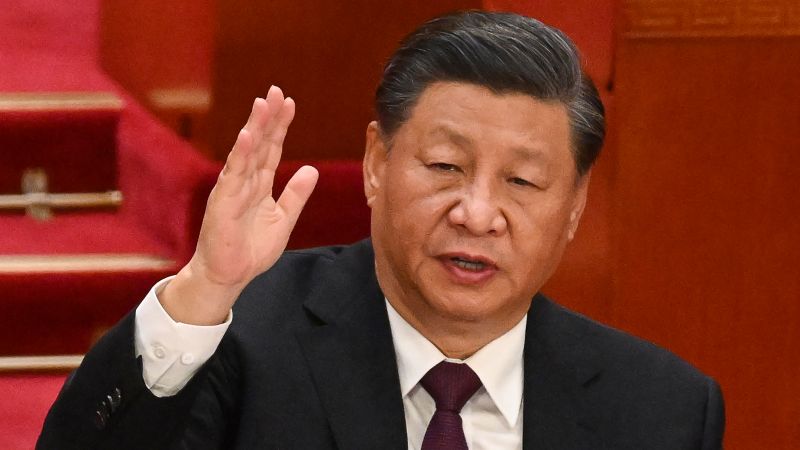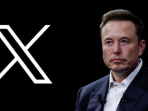CNN
—
China’s top leader Xi Jinping is set to begin a norm-breaking third term with an even greater concentration of power, after retiring key party leaders from the top ruling body to make room for his own allies.
The week-long Communist Party Congress concluded Saturday with the ushering in of a new Central Committee – the party’s 200-member central leadership – which will in turn select a new slate of top leaders on Sunday.
Premier Li Keqiang and Wang Yang – neither of whom is seen to have close ties with Xi – are not included in the new Central Committee, meaning they have left China’s top ruling body and will go into full retirement.
Xi is widely expected to be appointed the party’s general secretary for another five years on Sunday, paving the way for potential lifelong rule. At 69, he has exceeded the informal retirement age of 68 for senior party leaders. Xi’s name is included in the list of new Central Committee members.
Li and Wang are both 67 and eligible to serve another five years on the party’s supreme Politburo Standing Committee under retirement norms. Instead, they are retiring early from the party’s apex of power, in a break with precedents in recent decades.
Li, China’s second-highest ranking leader, is required to step down in March as premier by the country’s constitution, which only allows the premier to serve two terms. Wang, who heads the Chinese People’s Political Consultative Conference, was previously seen by some as a potential successor to Li.
Their surprised departure opens two more spots on the Standing Committee for Xi to fill with his own allies and proteges. Two other members on the body are past retirement age and set to step down.
A standing committee line-up that fills the body with Xi loyalists would “change the power sharing arrangement that China has seen since the late 1970s,” according to Victor Shih, an expert on elite Chinese politics at the University of California San Diego.
“Informally, Xi Jinping’s powers are (already) extremely high. He restructured the military, cleansed the security apparatus of other influence, but formally speaking in the Politburo Standing Committee, even right now, there is a balance of power, where officials historically unaffiliated with him, still held seats – that may come to an end,” said Shih, adding such an outcome could create an “unhealthy dynamic” where Xi is surround by people unused to giving critical policy feedback.
Several proteges or allies of Xi have been flagged by watchers of elite Chinese politics as likely candidates for promotion. Those include Chongqing party chief Chen Min’er, 62, one of Xi’s longtime close allies and proteges, Ding Xuexiang, 60, who runs the General Office of the Communist Party, a position similar to being Xi’s chief of staff, and Shanghai party chief Li Qiang, 63 – who faced a fierce public backlash earlier this year over the city’s painful two-month Covid lockdown.
Eyes will also be on Hu Chunhua, 59, a vice premier outside Xi’s orbit who had previously been touted as a potential successor to Xi, Hu was denied a promotion into the Standing Committee in 2017, stalling his rise.
Hear the grim warning that got Xi Jinping a roaring applause during speech
The party’s five-yearly national congress is a carefully choreographed political theater, meant to showcase the unity and legitimacy of the party.
But Saturday’s closing ceremony in the Great Hall of the People featured a dramatic moment, when former top leader Hu Jintao was led out of the event unexpectedly.
Hu, 79, was seated in a prominent position at the front table on stage, directly next to his successor Xi, when he was approached by a staff member, according to images and video of the meeting.
The circumstances around his departure are unclear, but he appeared initially reluctant to leave. He has been seen in increasingly frail health in public in recent years.
CNN was censored on air in China when reporting on Hu’s exit.
Due to the opacity of Chinese elite politics, the party is unlikely to offer a public explanation on Hu’s sudden exit from stage. The dramatic moment is not reported anywhere in Chinese media, or discussed on Chinese social media. But it has set off a firestorm of speculation overseas.
The party congress fell short of expectations among some China experts that Xi could be anointed with new party titles, new honorifics, or have his political ideology, already enshrined in the party charter, formally truncated to “Xi Jinping Thought” – developments that would elevate him closer to the status of Mao Zedong, Communist China’s founding father.
But a flurry of Xi’s policies and political slogans have been added to the party charter, including phrases that cement his “core” status in the central leadership and the whole party.
The amendment of the party charter – approved by nearly 2,300 delegates in a ceremonial vote – also include one of Xi’s hallmark phrases: “struggle.” The term is also used by Xi when speaking about the challenges and perceived threats the party and the country faces, both at home and abroad.
“Dare to struggle, dare to win, bury your heads and work hard, be determined to keep forging ahead,” Xi told delegates during his closing speech.
The party charter was also amended to “resolutely oppose and contain Taiwan independence.” The Communist Party claims the self-governing democratic island as its territory, despite never having controlled it.
At the closing ceremony, the delegates also stamped their approval on the party’s 19th Central Committee’s work report, an summary of which was delivered by Xi last Sunday at the opening of the congress.
The work report extolled Xi’s leadership, saying the party with him at the core has led China through “a grim and complex international situation” and “huge risks and challenges that came one after another.”
Steve Tsang, Director of SOAS China Institute at the University of London, said unlike at the previous congress where Xi outlined a vision for China and a rough road map to achieve that vision, Xi merely reiterated the importance of doubling down on the current path – particularly when faced with headwinds.
“The main source of headwinds are evil foreign power, particularly the US, which tries to keep China down, so he demanded the people of China to follow even more strongly the nationalist banner flown by the CCP and led by none other the ‘greatest’ of CCP leaders Xi Jinping himself,” he said.
“This is good news for Xi, but bad news for China and the rest of the world.”
Sumber: www.cnn.com



